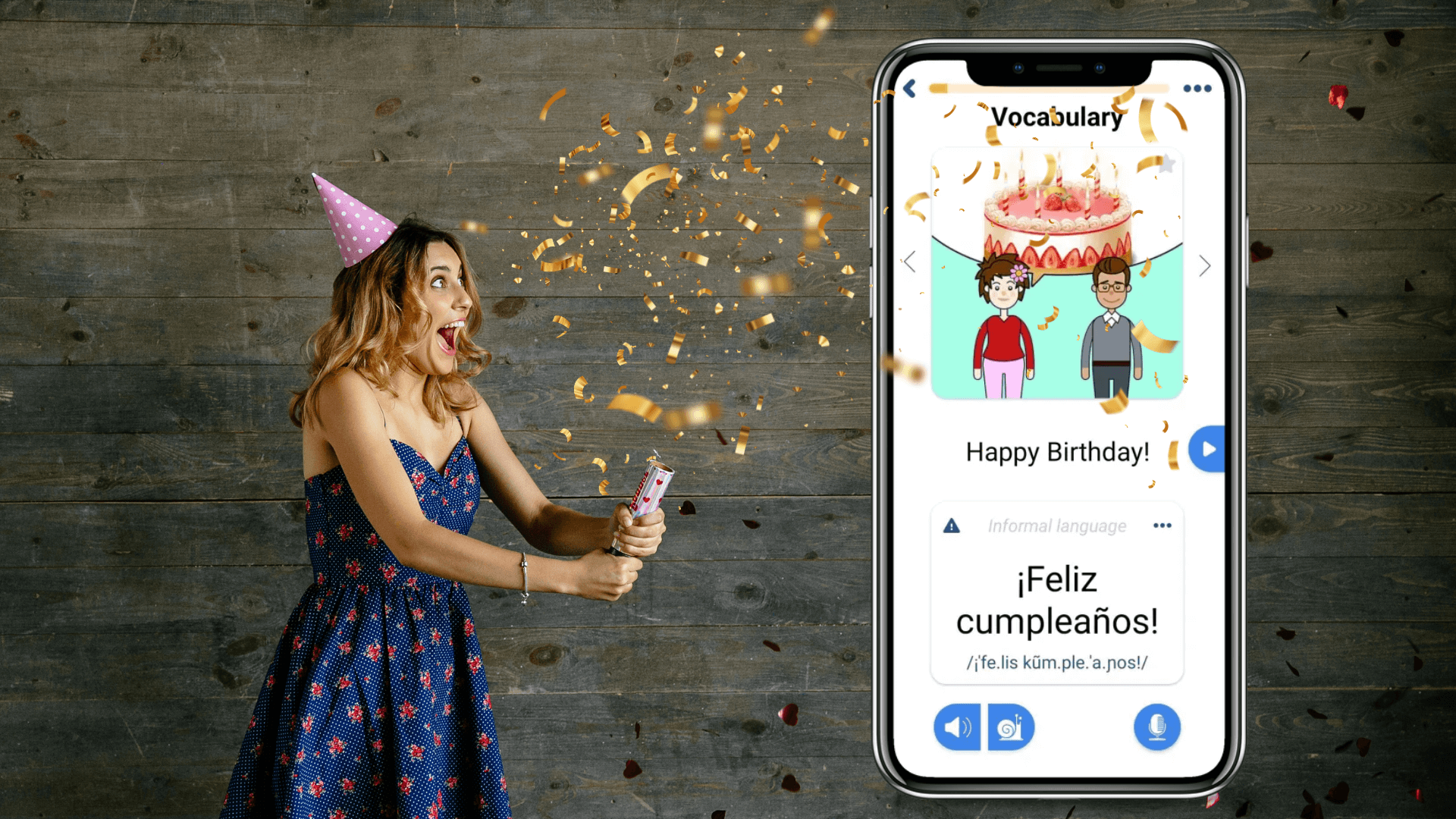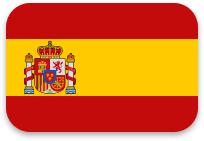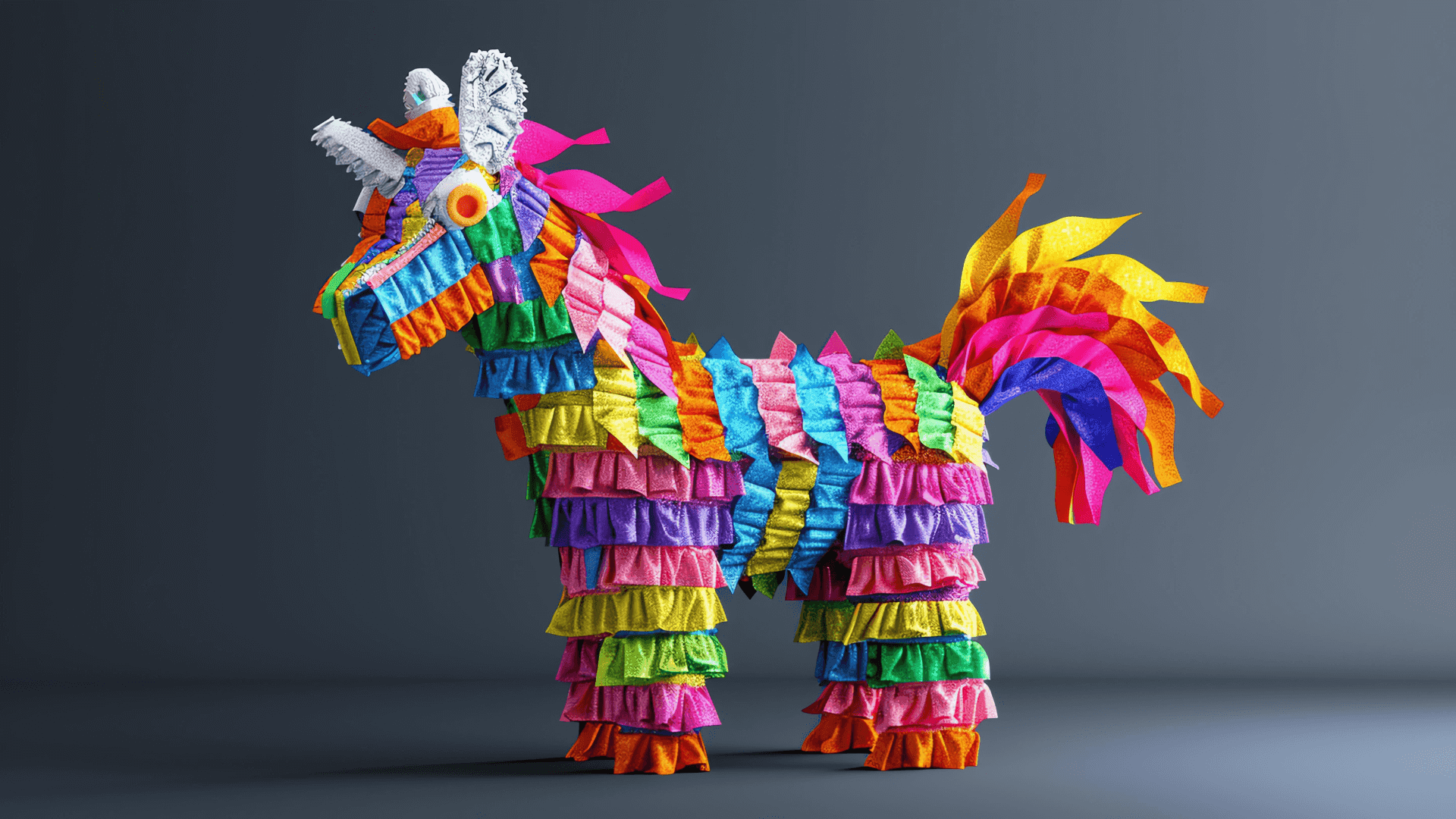Hola, language learner! If you're interested in Spanish, you should be aware of the significance of birthdays in Spanish-speaking countries. These celebrations often go beyond saying "Feliz cumpleaños" and having cake. Large family gatherings, enjoying festive meals to celebrate birthdays, are a cultural staple in Spanish-speaking countries. Let's explore more ways to congratulate a Spanish speaker on their special day.
Common Phrases to Say Happy Birthday in Spanish
The standard way to wish someone a happy birthday in Spanish is with a heartfelt "¡Feliz cumpleaños!" delivered in person, over the phone, or as a text message. The more casual, abbreviated form, "¡Feliz cumple!," is common among friends and family members. A popular wish is "¡Que cumplas muchos más!," which translates to "Here's to many more!" and is fitting for most situations, widely used in both formal and informal contexts.
More standard ways to say "happy birthday" in Spanish include the following:
- ¡Feliz cumpleaños! - Happy birthday! - Formal;
- ¡Feliz cumple! - Happy birthday! - Casual;
- ¡Que cumplas muchos más! - May you have many more! - Formal;
- ¡Feliz día! - Happy day! - Casual;
- ¡Muchas felicidades! - Many congratulations! - Formal;
- ¡Feliz cumpleaños atrasado! - Belated happy birthday! - Formal;
- ¡Feliz cumpleaños adelantado! - Happy early birthday! - Formal;
- ¡Te deseo un feliz cumpleaños! - I wish you a happy birthday! - Formal;
- ¡Por muchos años más! - To many more years! - Formal;
- ¡Felicidades por otro viaje alrededor del sol! - Congratulations on another trip around the sun! - Formal;
How to Personalize Birthday Wishes
Like in most languages, Spanish birthday wishes often include a personal or warm message to ensure that the person you congratulate has a joyful day. To personalize birthday wishes, you can combine multiple phrases into a concise text, adding specific details to make it more meaningful and heartfelt. With close friends, you can weave in some jokes into your message. For more personalized birthday wishes, consider mentioning shared memories, expressing gratitude, or praising their qualities.
- ¡Feliz cumpleaños, felicidades! - Happy birthday, and the best wishes!
- ¡Feliz vuelta al sol! - Happy turn around the sun!
- ¡Que tengas un día especial! - May you have a special day! - Casual.
- ¡Feliz cumpleaños, mi amigo/amiga! - Happy birthday, my friend! - Casual.
- ¡Que tengas un cumpleaños fabuloso! - Have a fabulous birthday! - Casual.
- ¡Te deseo un gran día! - I wish you a great day! - Casual.
- ¡Que seas muy feliz! - May you be very happy! - Casual.
- ¡Que tengas buena salud! - May you have good health! - Casual.
- ¡Espero que tengas un cumpleaños maravilloso! - I hope you have a wonderful birthday! Casual.
- ¡Te deseo muchas más velitas para soplar! - Wishing you many more candles to blow! - Casual, playful.
- Eres una persona increíble. Espero que tu cumpleaños sea tan especial como tú. - You are an amazing person. I hope your birthday is as special as you are. - Casual.
- Gracias por ser un amigo tan especial. Que tengas un cumpleaños lleno de alegría. - Thank you for being such a special friend. May you have a birthday full of joy.
Birthday Traditions in Spanish-Speaking Countries

Birthdays are accompanied by vivid traditions in Spanish-speaking countries. They vary by region and add an extra flair to the celebration.
In Mexico, it's customary to have a colorful piñata filled with candy, toys, or money. Blindfolded children and grown-ups take turns swinging at the piñata. Once it breaks, the birthday person, as well as the guests, can access the treasure inside. Another tradition is "mordida" (bite). The birthday person has to bite the cake without using their hands. Family and friends playfully push their face into the cake as they lean for the bite. Joyful chants "¡Mordida! ¡Mordida!" encourage the person celebrated to take the first bite of cake.
"Las Mañanitas" is a traditional Mexican song often sung to celebrate birthdays, typically in the morning to wake the birthday person. It's a heartfelt, joyful way to honor someone special, perfect for close friends or family. The English version is also popular, along with "Las Mañanitas."
In Spain, "los tirones de oreja" (ear pulling) is a playful tradition. The celebrated person gets one earlobe tug per year, and an extra one for good luck. The custom symbolizes a long life. The songs of the day are "Cumpleaños Feliz," based on the popular English tune, or "Feliz, feliz en tu día."
In Latin America, a girl's 15th birthday, known as "Quinceañera," is a significant celebration, marking her transition to womanhood. The celebration includes a mass and a choreographed waltz.
Colombia has a unique tradition of covering the celebrated person in "maizena" (cornstarch) or flour, sometimes mixed with water. Close friends and family typically perform this birthday prank as a symbol of abundance and fun. It's usually done after singing "Las Mañanitas" or when cutting the cake. Historically, the custom stems from rural traditions, which regarded flour as a symbol of prosperity.
Written Birthday Communication in Spanish
Crafting a written birthday wish in Spanish is an excellent way to celebrate someone's special day. Whether it's a card, text message, social media post, or email, you can share your warmest thoughts in a few lines.
Start your message with a warm opener:
- ¡Feliz cumpleaños, [name]! - Happy birthday, [name]
- ¡Qué alegría celebrar tu cumpleaños! - What a joy to celebrate your birthday!
- En este día tan importante… - On this very important day…
The body of the message should include wishes appropriate for the relationship with the celebrated person. Some options include the following:
- ¡Que este año te traiga salud, riqueza, amor y éxito! - May this year bring you health, wealth, love, and success.
- ¡Que tus sueños se hagan realidad este año! - May your dreams come true this year.
- ¡Que pases un momento maravilloso con tus seres queridos! - Have a wonderful time with your loved ones.
Close with an upbeat note along the lines of the following options:
- ¡Que tengas un gran cumpleaños! - Have a great birthday!
- ¡Un gran abrazo en tu día especial! - A big hug on your special day!
- ¡Por muchos cumpleaños más por venir! - Here's to many more birthdays to come!
How to Respond to Birthday Wishes in Spanish
If you receive birthday wishes from Spanish speakers, it would be great to reply in their native language. Saying "thank you" is usually enough to express appreciation. Here are a few additional options to show gratitude:
¡Gracias por tus deseos! - Thank you for your wishes! - Ideal in formal or semi-formal contexts.
¡Muchas gracias por acordarte de mi cumpleaños! - English: Thank you so much for remembering my birthday!
¡Te agradezco mucho tus felicitaciones! - I really appreciate your congratulations! - More formal, widely used in Spain and Latin America, especially in professional settings.
¡Mil gracias por el cariño! - A thousand thanks for the love! - informal, used with close friends and family
¡Gracias a todos por tanto cariño! - Thanks to everyone for so much love! - Ideal for social media, usually the day after your birthday.
¡Gracias igual, nunca es tarde! - Thanks anyway, it's never too late! - A polite reply to belated birthday wishes.
Learn Spanish with FunEasyLearn

Spanish is one of the 34 language courses created by FunEasyLearn's ed-tech professionals, certified translators, expert programmers, and designers. The app is designed to help you master basic phrases, such as "Feliz cumpleaños." Learn to speak with confidence in Spanish with 6,000 words and 3,750 ready-made sentences. Enjoy learning without distractions with an offline mode and zero ads.
Over 350 topics
Develop a strong vocabulary by exploring topics essential for effective communication in Spanish. From Greetings to Making Friends, Education, Jobs, Travel, to Leisure Time and Health, every topic adds to your active word bank and builds your fluency step by step.
Gamified Learning
Have fun playing educational games, collecting flowers that you can use to get a one-month premium subscription for any language course. Receive in-app achievements that help you celebrate milestones and build learning habits. Gamification enhances learners' motivation and alleviates the frustration of beginners when attempting to master a new language. Thrive in a low-pressure environment, get positive reinforcement, and let learning feel like a game, not a chore.
Learning Modes
Activate the Hands-Free mode to learn Spanish on the go, during your daily commute, while standing in a line, or on vacation. Empower young learners with the Child Mode. It creates a safe learning environment by adjusting the course content to children under the age of 13. Turn on the Deaf Mode to exclude all listening exercises, or customize the games you play.
Are you ready to learn Spanish, amigo?











